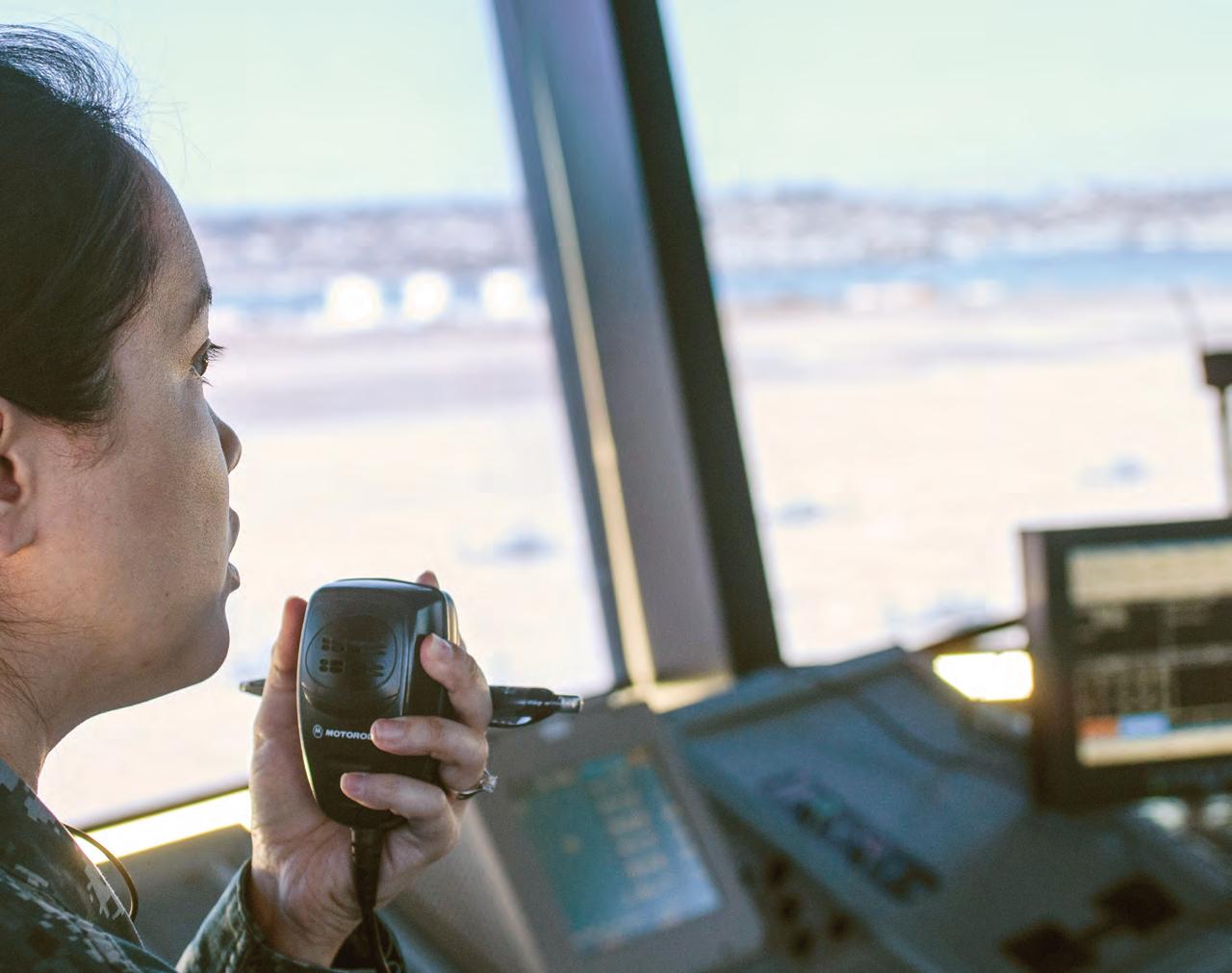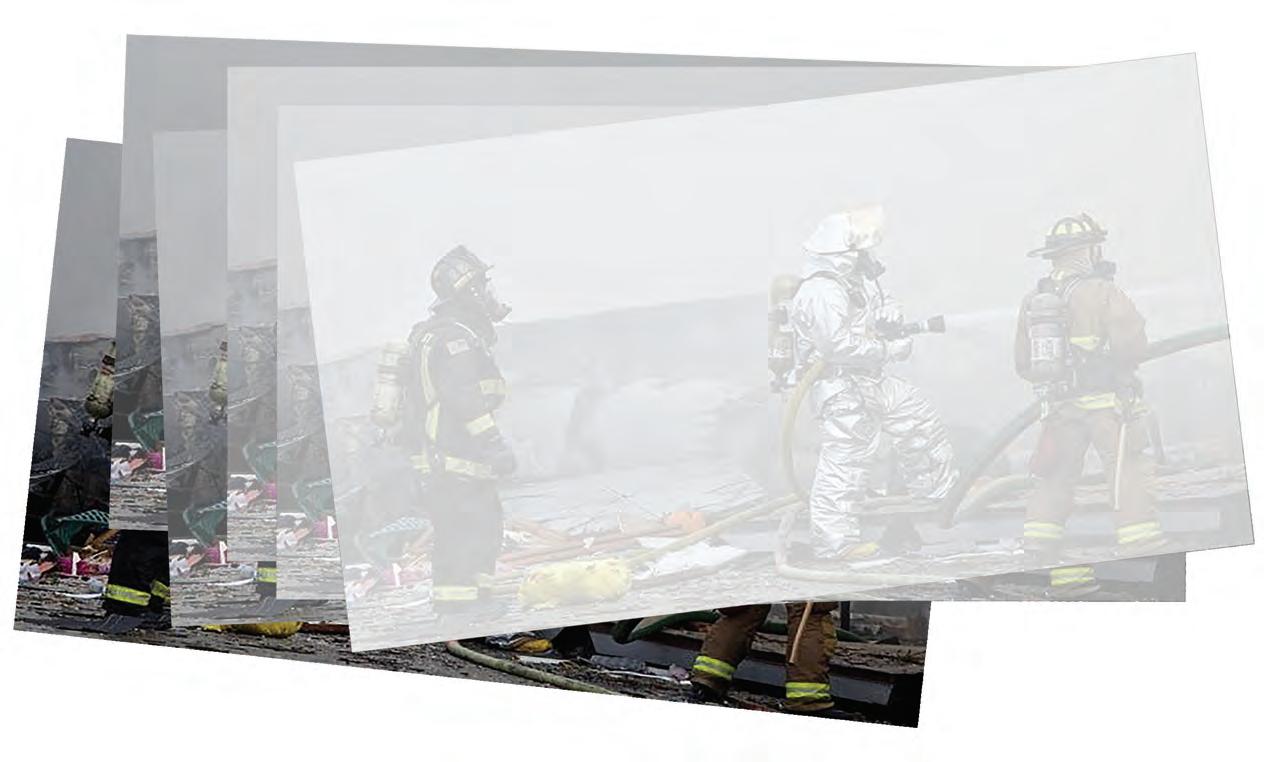
3 minute read
The Danger of Not Compartmentalizing Stress
Feeling stressed, frustrated, or worried? Wrestling with personal issues? It’s time to tell somebody.
BY LT KIRSTEN CARLSON
Aviators learn to operate sophisticated systems, often under profound stress. They’ve been purposely exposed to various forms of stress from the beginning of training. Only those who adequately respond to scenarios requiring splitsecond decisions are trusted with those tasks.
Pilots, NFOs and airctewmen are more likely to have certain characteristics relating to how well they handle stress. They are likely problem-focused, highly responsible, and able to use sound judgment in an emergency. Their capacity to handle short- and long-term stress is, for the most part, higher than the general population.
However, a threshold exists for every person, where the ability to cope is no match for what life throws their way. No one is immune to stress, and aviators aren’t any less at risk for crossing this threshold. In fact, when chronic stress issues arise, aviators may not have the best methods to deal with them. Aviators may be more apt to use an avoidant, externalizing coping strategy – so-called “acting out”. Signs of ineffective coping in aviators include denial, defensiveness, over-sensitivity to criticism, argumentativeness, arrogance and chronic interpersonal problems.
Aviators make mistakes, and 80 percent of mishaps are the direct result of human factors. Do you think you’re more or less likely to make an error in the cockpit if you’re rested versus exhausted or relaxed versus worried?
One study compared characteristics of aviators who were involved in a mishap with aviators who were not involved in a mishap. The “at-fault” group was more likely to have marital problems, problems with interpersonal relationships, recent trouble with supervisors, and recent trouble with peers.
Consider the following examples: a pilot with more than 6,000 hours was on a local proficiency flight. He had a lot of recent flight time. It was daylight, with ceilings unlimited, visibility 10 miles and wind calm. He was observed circling at 6,000 feet. He was next seen at 300 feet; gear up, full power and nose down. The mishap board concluded that the primary causal factor of the accident was pilot error, and the secondary factor was the “psychological state of the pilot due to a pending board of investigation.”
In another case, a pilot on final approach lost sight of the aircraft ahead, landed high and hot, and collided with another plane on a runway. He blew both tires trying to brake to a stop. This mishap was chalked up to pilot error. What was the background story? This pilot had been grounded for an anxiety reaction several days before, after a narrow escape on join-up when a friend of his had crashed. He failed to explain his mental state when he was given his up-chit by a different doctor.
IF YOU TRIED TO FLY WITHOUT AN UP-CHIT or with overdue swim qualifications, you’d be quickly corrected. It’s harder to know when psychological or emotional factors should keep you on the ground. A flight surgeon needs input from you. Likewise, the CO, XO, flight surgeon, AMSO, and operations officers are responsible for knowing their people and keeping an eye out for indicators that all is not well with one of their own. An established climate of non-punitive feedback from leadership is the key to ensuring those with concerns can come forward.
One CO put it this way: “During my introductory talk to future students, I define false pride and lack of a proper attitude. I encourage students to tell me, the ops officer, the flight safety officer and/or the flight surgeon about any personal or professional problems that may reduce their proficiency in flight as pilots. I want pilots under instruction to know that if they reveal a problem, it will be dealt with in confidence!”
It may not be you who’s struggling. Nevertheless, your life could very well depend on your buddy getting help, whether that’s in the form of rest, financial assistance, formal counseling, a substance-abuse intervention or a few visits to a chaplain.
An aviator’s line of work almost guarantees that he or she will encounter stress. Most of the time, they’ll be able to handle it sufficiently. If you find that you’ve hit a particularly rough patch, take advantage of your options. Seeing your flight surgeon when personal issues are closing in is a great step in the right direction.
LT CARLSON IS THE AEROSPACE EXPERIMENTAL PSYCHOLOGIST WITH THE AVIATION
SAFETY PROGRAM AT THE NAVAL SAFETY CENTER.










